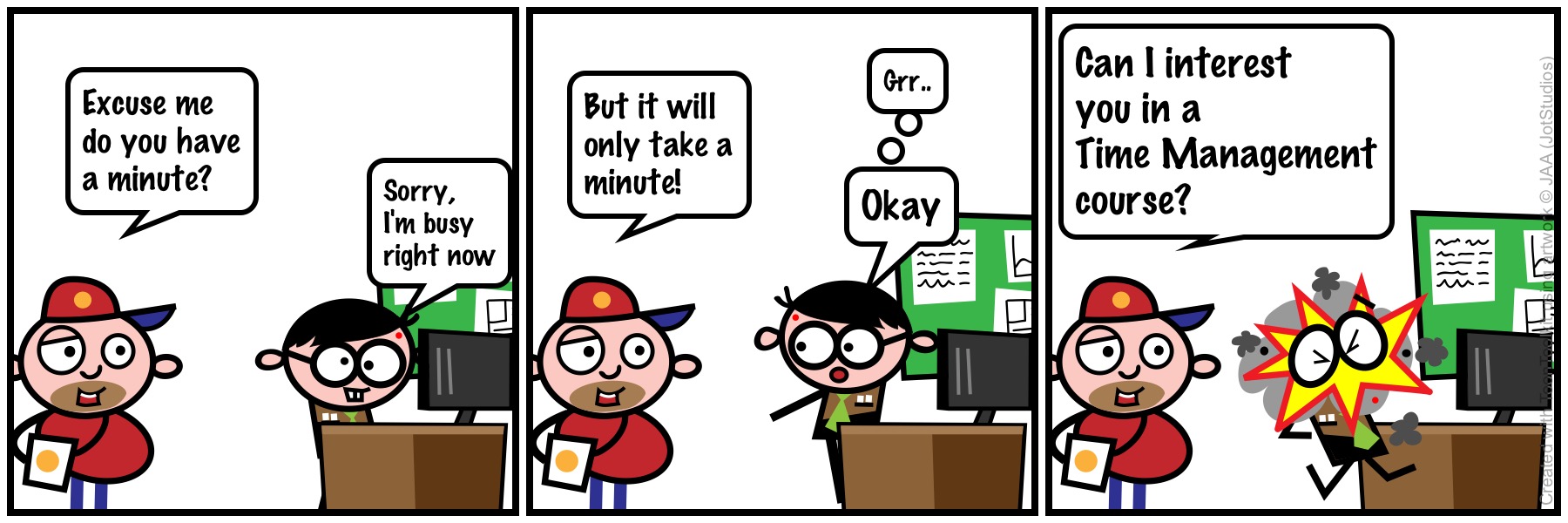
Is increasing productivity and quality of your employee’s product/service desirable? Here’s a secret – stop interrupting them, says Peter de Jager
I’m self-employed. My only company is the dog quietly snoring at my feet. As I start to put this article to ‘paper’ it is 8:55am, February 11th – I expect to have it complete and spiked by 10:00am-10:30am. In a typical office? It would take somewhat longer to complete, possibly 1-2 days before I’d be satisfied enough with the final product to fire it off to my editor.
The increase in time is not because I have any innate allergic reaction to working in a large building surrounded by the hustle and bustle of office life, but because I would NOT be able to carve out 2-3 hours of solid time to devote to penning this piece. I’d be interrupted. Constantly. Incessantly. Persistently.
Each time I’m interrupted, I lose my train of thought – and have to claw my way back to the article. The same is true if I am working on a budget report, data analysis, programming, planning a meeting, putting together a presentation, etc.
Isn’t time management a tired topic? Perhaps, but over the past two months I’ve had occasion to visit a dozen different organizations – they have little in common with each other except this – they are overworked to breaking point. What I see scares me.
It’s not just that all our plates are filled to the brim with tasks and projects of various sizes and degrees of importance; it’s that the list of what we have to do isn’t stable. Our to-do list is no longer a day’s project plan, it is a naïve wish list for what we’d like to accomplish but which we have no hope of completing – a recipe for burnout.
Our to-do list (if we even bother to write it down anymore) is a pipe dream. No matter what someone has scheduled to do in the next hour – it can, and mostly likely will, be put to the side because of yet another last minute meeting. The person calling us to the meeting has zero regard for what they have interrupted – that scheduled meeting? The one with 10 people in attendance? We’ll have to reschedule that one. The lost productivity is frightening.
Our most common solution is – arrive early, before all of our interrupters arrive at the crime scene of future productivity loss. In solitude we’re productive. This works for an individual – it doesn’t solve the problem organizationally.
We need a change in behaviour. More accurately, a change in several organizational behaviours.
- Not everyone who reports to us is immediately available – chances are they’re working on something we assigned them earlier – we need to schedule not demand
- Just because we can message someone immediately – should not mean they must respond immediately. Allow them to finish what they are doing before they switch to another task. By doing this they SAVE the 20 minute cost of interruption.
- ‘Emergency’ meetings are proof positive we’re poor planners. We can’t plan everything perfectly, but if we’re calling emergency meetings every day? Then something is seriously wrong somewhere. Don’t go near a mirror.
- Before we assign a new task – Do we know what they’re currently doing? What are we interrupting? Fundamental question – Do we care? If we don’t, reading this article was a complete waste of your time (not to mention writing it…).
Of course, the person being interrupted can take control.
It’s been pointed out a million times or so, pointing it out one more time can’t hurt (will likely not help either but we work with what we have.) We really need to learn how to say ‘No’, or if that’s too harsh, then at least learn how to say, ‘I’m busy right now – can I get back to you when I finish this?’













